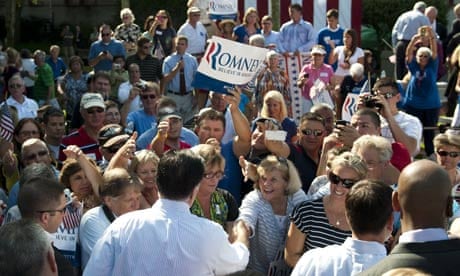My initial reaction to Mitt Romney's selection of Paul Ryan as his vice-presidential nominee was one of befuddlement. Although it had been widely reported that Ryan was a finalist, the move made little electoral sense to me.
As I noted on Saturday, the biggest electoral impact a vice-president has is in their home state, where they usually add a few points to the presidential ticket's margin. Wisconsin is a somewhat close state, but not a state where Ryan can be expected to put Romney over the top. Ohio remains the tipping-point state in this election. Romney is about 3 percentage points behind Obama in Ohio, and it's easy to imagine how the selection of Senator Rob Portman could have given Romney the edge he needed in the Buckeye State.
A secondary electoral effect is vice-presidential nominees can motivate the base. That can be crucial in a "base" election, such as 2004 was – and 2012 is expected to be. The conservative base, however, was already quite motivated before the Ryan announcement. Animating the base might also have been important if Romney was suffering from lackluster fund-raising, but Romney and his Super Pacs were already set to have a money advantage going into the final months.
Beyond that, vice-presidents usually have little impact on the final outcome of the election. There is some evidence that views on Sarah Palin may have correlated with voting intention, but the end result in 2008 was right where most econometric models would have pegged it.
So why, then, did Romney choose Ryan?
Some are taking the Ryan pick as a sign that Romney made a calculated decision based on polling and focus group data that he couldn't win on the current path of his campaign. He couldn't win by making this election solely a referendum on President Obama's job performance – so he had to make it a "game-changing" choice. Supporting this argument is the fact that a number of polls came out last week showing Romney down by high single-digits.
As Mark Halperin points out, however, there are two different sets of poll numbers. Yes, some polls have the gap in high single digits, but another set has Obama and Romney within 2 points of each other. The state data support this closer race. Most sources inside the campaigns acknowledge that the polls showing a tighter race are likely closer to the truth.
Mitt Romney's own pollster Neil Newhouse was against the selection of Ryan. A pollster's job is to give his candidate the hard numbers. Newhouse probably understood that when you're right on goal line, you don't throw a Hail Mary. The situation instead dictates that you should run the football with a safe pick. Newhouse's advice was the opposite of what John McCain's pollster and Newhouse partner Bill McInturff gave in 2008 when McCain was persuaded that he needed a "game-changer".
Indeed, Mitt Romney requested that no focus groups or polls ask how potential vice-presidential nominees would play with the public. If he had, he would have seen there were plenty of other candidates, from Marco Rubio to Chris Christie, who made more sense from a shake-up angle.
So, if Romney was consciously disregarding what polling might tell him and what his pollster actually was saying, then there would be three non-electoral reasons that propelled him to chose Ryan.
First, Romney saw a lot of Ryan in himself. As Robert Costa reported, Romney loves analytical research and data-crunching investigation. While some could quibble with the description of Ryan as a "policy wonk", Romney commented in Sunday night's 60 Minutes interview that he saw Ryan and himself that way. Second to a vice-president being ready potentially to be president on day one, the most important quality for a vice-president is to have a good working relationship with the president.
Second, and relatedly, Romney wanted fresh, big ideas. Romney made a habit of hiring young talent at Bain Capital. Someone who sees a problem in a different way than he does excites him; someone even who would tell him why he's wrong about an issue. The other final choices on the list Rob Portman and Tim Pawlenty probably would not fulfil that role.
Third, Romney was never going to choose a moderate. The three presumed finalists are all politicians who can be described as conservative. Romney also got along well with Chris Christie: while the New Jersey governor can be confrontational, he was likely to be seen as too moderate to make up a Romney ticket. Condoleezza Rice, another object of speculation last week, would have ticked the policy wonk box, but she is pro-choice.
Ryan's selection is revealing: the signal Romney is giving with this pick is that he wants to do more than just win the election; he has chosen to pitch a conservative vision for the US. Whether or not that plan will sell with the American public is to be determined.
